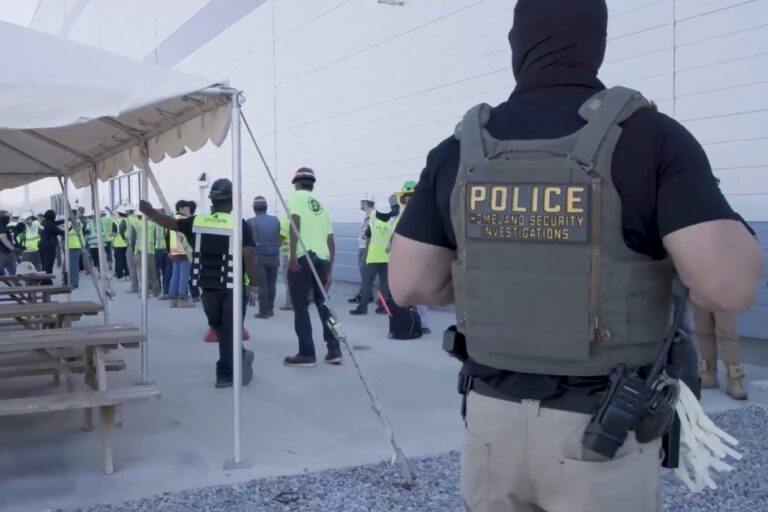Enhanced Immigration Enforcement Operations Following Hyundai Plant Raid
The recent enforcement actions by U.S. Immigration and Customs Enforcement (ICE) spotlight the ongoing challenges surrounding immigration and employment practices in the United States. Following a significant raid at a Hyundai battery manufacturing facility in Georgia, where 475 individuals, primarily South Korean nationals, were detained, President Trump’s border czar, Tom Homan, confirmed further worksite immigration enforcement operations are forthcoming.
Increased Worksite Enforcement
Key Details of the Hyundai Raid
- Location: Hyundai battery manufacturing plant, southeastern Georgia
- Arrests: 475 immigrants detained, mostly South Korean nationals
- Reason: ICE executed a search warrant due to “serious allegations of unlawful employment practices and other potential federal crimes.”
Mr. Homan emphasized the legality of the immigration process, stating, “It’s a crime to enter this country illegally. Number two, it’s a crime to knowingly hire an illegal alien.” He reinforced that companies employing undocumented workers undermine U.S. citizens’ earnings and labor conditions.
The Impact on Hyundai’s Operations
Hyundai has publicly stated that the detained employees were not directly employed by the company. In a response to local media, Hyundai said:
"We are reviewing our processes to ensure that all parties working on our projects maintain the same high standards of legal compliance that we demand of ourselves."
This incident underscores the complexities arising from large-scale investments, such as Hyundai’s over $7 billion development project in Georgia, which is expected to create approximately 8,500 jobs in the region.
Plans for Chicago and Beyond
Looking forward, Mr. Homan indicated that Chicago may be the next focus for large-scale ICE operations. President Trump hinted at possible military involvement, stating on Truth Social that Chicago was “about to find out why it’s called the Department of WAR.”
National Guard Involvement
- The National Guard could be deployed in Chicago for various support roles, facilitating the processing and transport of migrants.
- Homan clarified, “National Guard are always on the table… They provide infrastructure, transportation, and additional processing capabilities.”
This move signals a broader shift towards stricter enforcement in so-called sanctuary cities, where local policies may protect undocumented individuals from federal deportation.
Expected Actions
- Raids: Increased raids in sanctuary cities across America.
- Target Areas: Areas where illegal immigration is perceived to threaten public safety.
- Deployment: While the National Guard will not conduct arrests, their support will enhance ICE’s operational effectiveness.
South Korean Nationals’ Return
In conjunction with these developments, reports indicate that the detained South Korean nationals will soon be returned home on a charter flight. South Korea’s Foreign Minister, Cho Hyun, plans to meet with U.S. officials to discuss future preventative measures.
Conclusion
The operations at Hyundai underscore a significant enforcement strategy shift within the current administration, reinforcing a zero-tolerance approach to illegal immigration and unlawful employment. For ongoing updates on immigration enforcement and labor practices, refer to ICE and other relevant regulatory websites.


